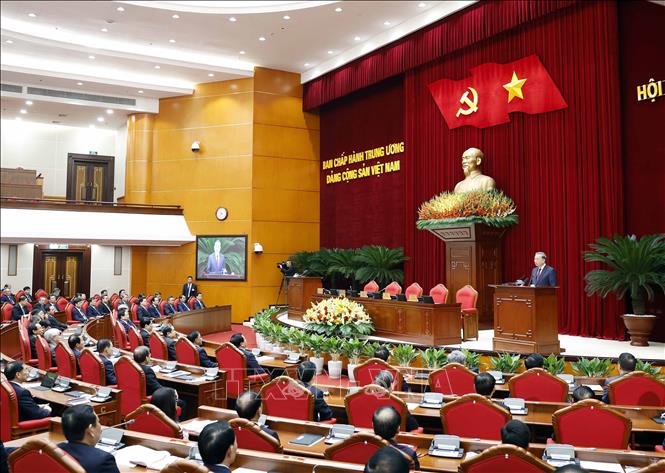
General Secretary To Lam delivers the closing speech of the 14th Conference of the 13th Party Central Committee, November 6, 2025. Photo: Thong Nhat/VNA
Why are the 5 "plus points" key in the strategic orientation of building a national leadership team?
The answer lies in the time when the country is entering a new phase, when the development aspirations have been clearly defined in the Party's resolutions. Therefore, the selection of people to take on historical responsibilities is of decisive significance.
First of all, let's look at the first requirement: having a national strategic vision and the ability to maintain the country's autonomy. That vision is not only the ability to look far and wide, but also the sharpness and courage to choose an independent and autonomous development path, not dependent on or caught up in external vortexes.
In the context of a changing world and increasingly fierce strategic competition between major countries, leaders must see opportunities in challenges and identify risks early to protect national interests.
Nearly 40 years of innovation have shown that many of Vietnam's great successes are associated with people with very far-sighted visions, such as the orientation of international economic integration, private economic development, or the current green transformation and digital transformation policies.
Strategic vision is what makes the difference between a policy maker and a national leader.
The second requirement is to have the capacity to lead and command at a national scale. Not only being good at one industry or one field, that leader must have the ability to manage the whole, unleash resources, and gather strength. In the current digital age, leaders cannot stop at administrative experience, they need to have the capacity to organize and execute: design clear and specific goals, establish personal responsibilities, measure with data, and make decisions "to the end" with high public discipline.
A country's leader must have political prestige and symbolic integrity for everyone to follow. Prestige does not come from position, but from personality, example, dedication and actual results.
In the history of our country's revolution, the political prestige of leaders and leadership teams has always been an invaluable source of spiritual strength, gathering the people's trust. In the current context, when society increasingly demands transparency, integrity and efficiency, leaders need to demonstrate political mettle, integrity and ethics, and set an example, putting the interests of the nation and the people above all else. Political prestige is also a measure of trust and the foundation of people's trust in the Party.
The fourth "plus point" is that senior personnel must be able to implement the Resolution into measurable results and achievements. This shows that our Party is especially appreciating and valuing the quality, efficiency, and dedication of cadres, prioritizing cadres whose projects, plans, and plans have had a clear impact; and have the capacity to handle crisis situations such as natural disasters, epidemics, finance, and non-traditional security. Such personnel must be decisive but must know how to listen to criticism, rely on the people, and work for the people. Only then can we clearly reflect the spirit of "saying what we do" and "bringing the resolution into life".
Reality over the past time shows that from the central to local levels, there is still a gap between policy and practice. To overcome this, the new leadership team must change their thinking and action, considering results as a measure of capacity. Achievements in infrastructure, economy, technology or social security all start from people who dare to take responsibility, dare to innovate and dare to do.
A resolution, if not realized by specific numbers and by the quality of life of the people, is still just a promise. Therefore, the ability to turn will into practical results is the decisive factor in the capacity of a strategic cadre.
Finally, the requirement for those worthy of joining the Politburo and Secretariat is to have enough endurance, both mentally and physically, to withstand the pressure of work during the 14th term and the following terms.
This is a seemingly simple request but has profound meaning!
In the context of increasingly heavy workloads and the rapid pace of political, economic and social life, leaders not only need intelligence but also endurance to maintain alertness, courage, dedication, reform will, and steadfastness in overcoming pressure. A healthy, steadfast, and persistent leader is the symbolic image of a dynamic, modern and effective Party. From spirit to body, political endurance is a guarantee of stability and long-term leadership.
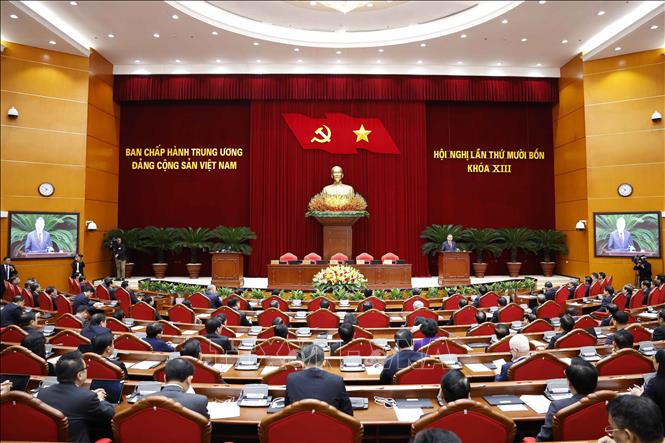
General Secretary To Lam delivers the closing speech of the 14th Conference of the 13th Party Central Committee, November 6, 2025. Photo: Thong Nhat/VNA
Therefore, the five "plus points" that General Secretary To Lam pointed out are not only requirements for a specific personnel period, but also a long-term orientation to form a leadership team with high intelligence, ethics, capacity and fighting spirit. This is also a step to prepare for the journey to 2030 - the 100th anniversary of the Party's founding, and further to the vision of 2045, when Vietnam strives to become a developed, high-income country. A strong Party can only be built on the foundation of strong people, both in quality and capacity.
The 14th Central Conference therefore not only discussed personnel matters, but also laid the foundation for a new leadership model. Each "plus point" is a commitment to stature, responsibility and dedication.
As the General Secretary emphasized, the responsibility of "choosing the right person for the right job", especially senior personnel, the country's leaders, is a prerequisite to turning vision and aspirations into results.
Source: https://baotintuc.vn/thoi-su/5-diem-cong-cho-nhiem-ky-moi-tam-nhin-uy-tin-va-suc-ben-chinh-tri-20251108080722079.htm










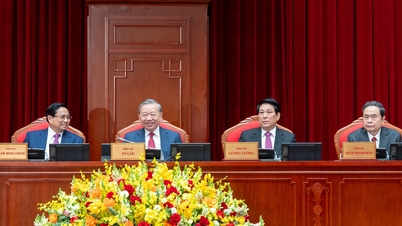

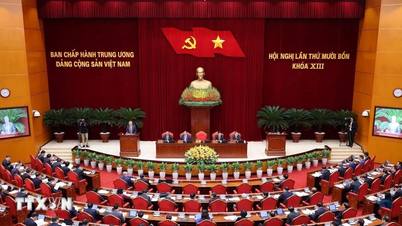

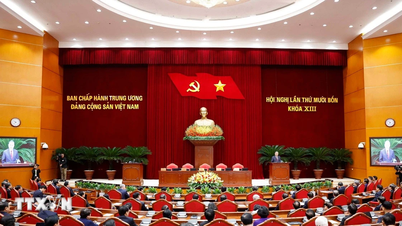


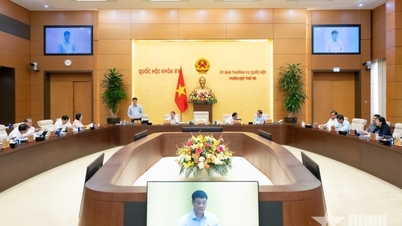





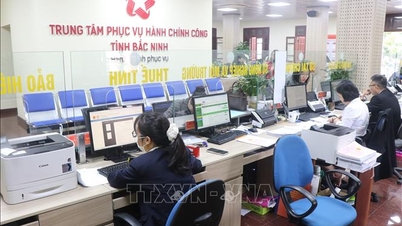








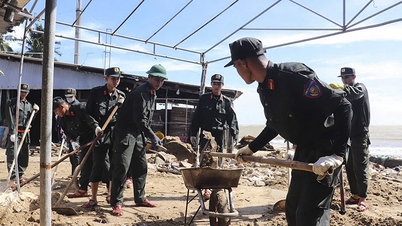


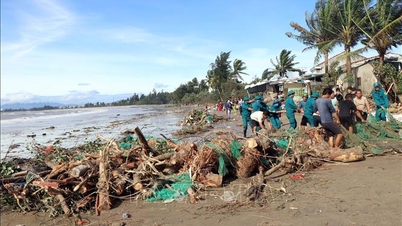



![[Video] Hue Monuments reopen to welcome visitors](https://vphoto.vietnam.vn/thumb/402x226/vietnam/resource/IMAGE/2025/11/05/1762301089171_dung01-05-43-09still013-jpg.webp)































































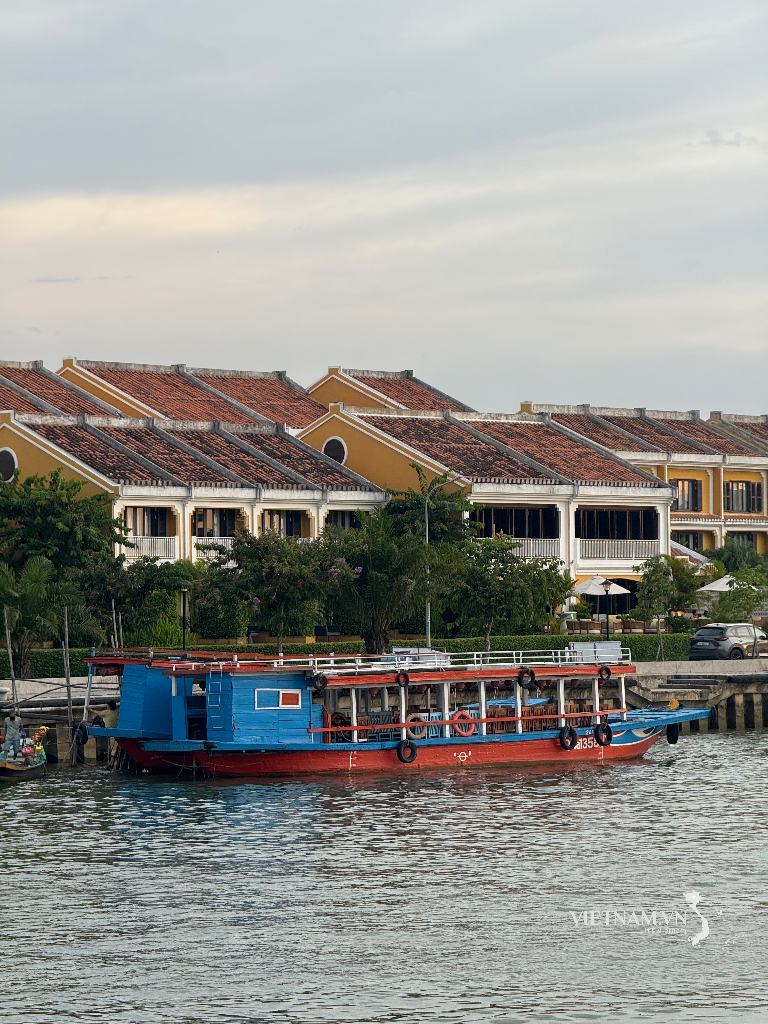

Comment (0)